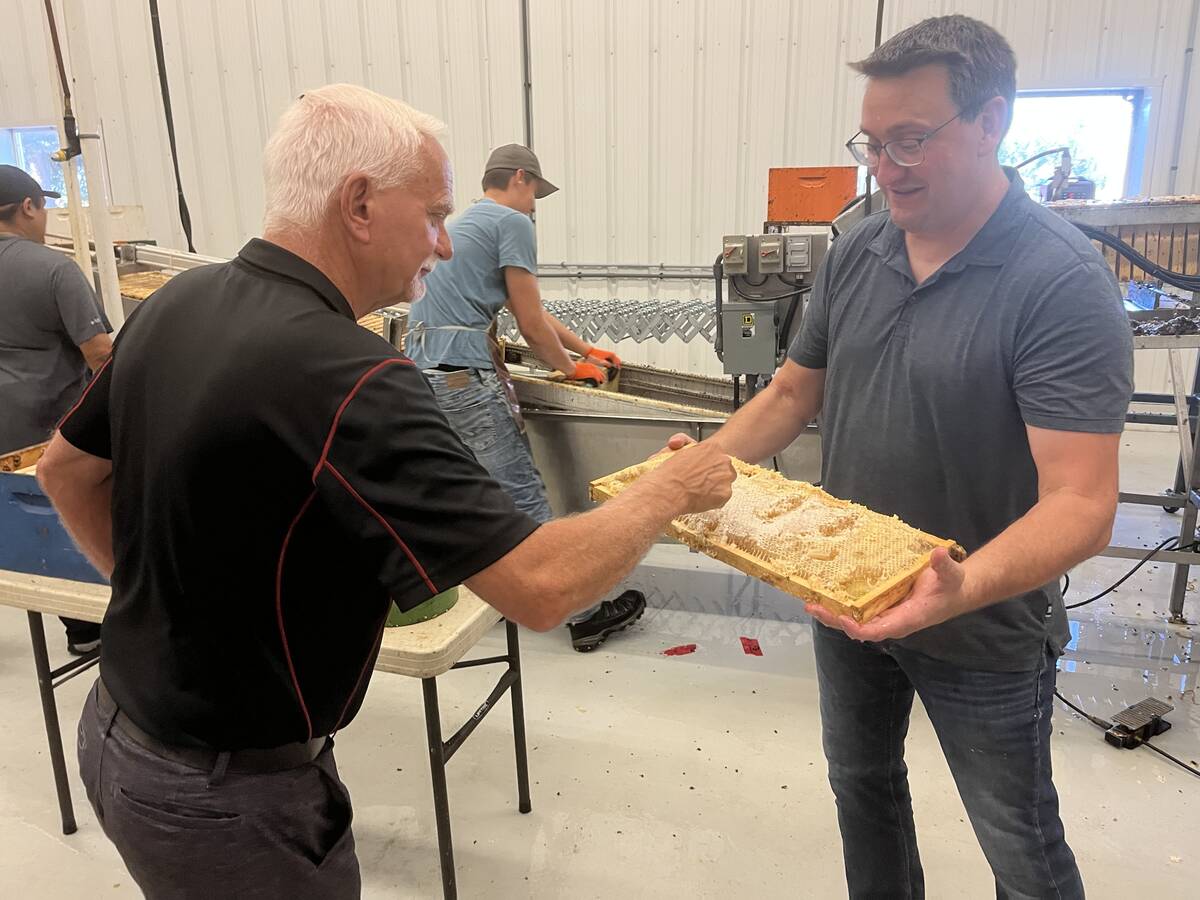DAVIDSON, Sask. – When Davidson, Sask., residents became aware last year that four babies in their district had been born with or developed cancer, they wondered why.
The Saskatchewan Cancer Agency declined to investigate because the infants each had different types of common cancers which does not constitute a “cluster.”
Then a local organic farmer began looking into the cases on his own.
Elmer Laird, president of the Back to the Farm Research Foundation, took water samples from the town’s deep well, from its dammed surface water site and from the nearby rural municipal airport well. The three samples, collected in mid-August in the presence of another producer who uses chemicals, were sent to an Edmonton laboratory, which is testing for residues of farm chemicals.
Read Also

Alberta honey business ‘thrives’ despite bumpy beginnings
Thrive Honey showcases its honey production in market where Alberta produces 40 per cent of all honey produced in the country
Results should be out later this week, said a representative of Enviro-Test Laboratories. Irv Callin with the lab said while individuals often want their water checked for pesticides and other contaminants, they usually ask a regulatory agency to deal with the lab tests because of the price of analysis.
Laird said the tests he requested cost $2,546.50 and the foundation is asking for donations to assist it. Davidson town council gave $150.
Laird said the babies’ health has since improved but more details are not available. One family has moved out of town and another declined to be interviewed.
Doug Ball, chief executive officer of the Midwest Health District, said he could not comment on specific cases.
Lab official Callin said people are usually more concerned about the presence of bacteria and parasites such as E. coli, cryptosporidium and giardia in their water.
“I wouldn’t say pesticides are any bigger a topic now than in the past,” said Callin.
Ball said health officials “have concerns about the water throughout the district.” They have issued boil-water advisories and orders, aimed more at bacteria and parasites than chemicals. Ball “can’t really say whether the water in Davidson is an issue. But do we want to know the results? Yes.”
Laird said his discussions with agricultural businesses in the Davidson area revealed that 64 different farm chemicals are sold in the area and used by district farmers. He runs a finger down the pages of the 110 approved chemicals in Saskatchewan Agriculture’s Guide to Crop Protection 2001, which list common name, manufacturer and formulation.
“What’s missing is a column here showing the side effects.”
Laird started farming in the area in 1947 and used chemicals until 1969. He quit buying the products for economic reasons but is now also convinced there are environmental reasons to avoid farm chemicals.
He set up his organic research foundation in 1973 to work on the issue and since retiring from active farming, plans to rent some of his land to the foundation.
Laird has received a Sept. 10 letter from the Saskatchewan health department agreeing to set up a meeting soon to discuss his concerns and to update him on steps the province has taken to reduce the impact of pesticides and to protect water, air and food quality.
Laird said the 1,150 people in Davidson get two-thirds of their water from the surface site and one-third from the deep well. Signs at the airport well site indicate the water is not safe for infants.
“I expect that the dam will have quite a variety of pesticides in it,” Laird said. “I’m not sure of the other two sites.”
Hans Peterson, head of Saskatchewan’s Safe Drinking Water Foundation, said pesticides could be a concern in specific cases, but he feels microbes in the water are a bigger issue. He said the challenge with farm chemicals is that they could have a dramatic impact, especially on a developing fetus, but by the time the water is sampled, the residue is gone.
“Biological systems can be more sensitive than chemical testing.”
Peterson said he hopes governments become more active in ensuring safe drinking water. He said Canadians are beginning to deal with bacteria and parasites, but still are not dealing with the issue of viruses in drinking water. Viruses are linked to major diseases such as heart muscle inflammation and diabetes.
He advises farm families to treat their drinking water, regardless of source.
















